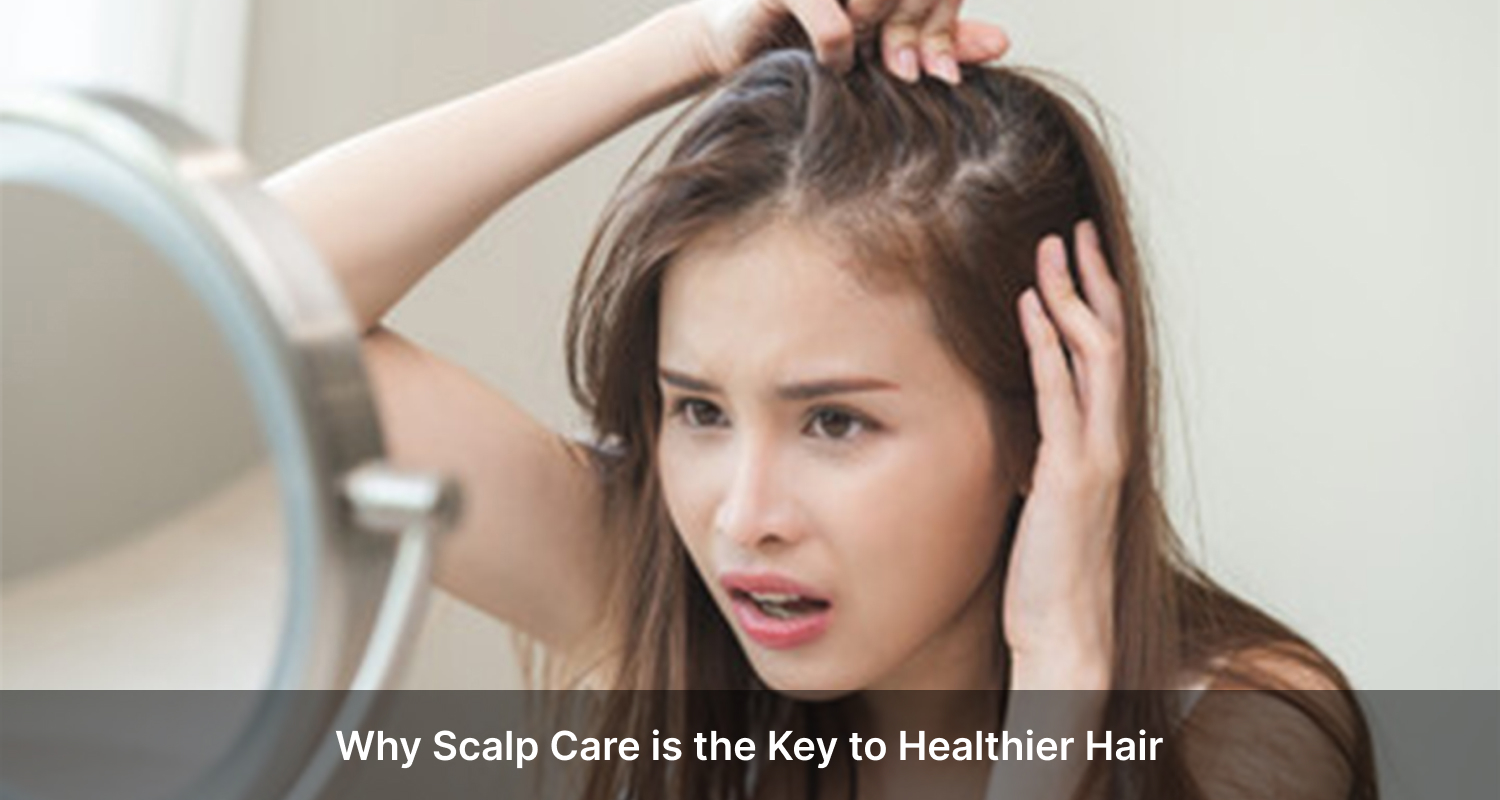Introduction
Managing oily hair is a common challenge that many individuals face. Oily hair can be frustrating and can impact one’s confidence and overall appearance. Understanding the causes and implementing effective hair care routines can significantly improve the condition of oily hair, leading to healthier and more manageable locks.
Oily hair results from the overproduction of sebum, a natural oil produced by the sebaceous glands in the scalp. While sebum is essential for maintaining healthy hair, excessive production can make hair look greasy and unclean. Many misconceptions surround oily hair, such as the belief that washing it more frequently will solve the problem. However, managing oily hair requires a balanced approach that addresses the root causes and incorporates appropriate hair carepractices.

What Causes Oily Hair?
Before we dive into how to manage oily hair properly, it’s important to understand what causes it:
Genetic Factors: Genetics play a significant role in determining the amount of sebum produced by the scalp. If oily hair runs in your family, you are more likely to experience the same issue.
The number and activity level of sebaceous glands can be inherited, meaning that if your parents or close relatives have oily hair, you may also have a higher likelihood of having oily hair. While genetic factors cannot be changed, understanding your predisposition can help you tailor your hair care routine to better manage oiliness.
Hormonal Changes: Hormonal fluctuations can have a profound impact on sebum production. During puberty, for instance, the body undergoes significant hormonal changes that can increase sebum production, leading to oilier hair.
Similarly, hormonal changes during menstruation, pregnancy, and menopause can also affect the scalp’s oiliness. Managing these hormonal changes through medical advice and appropriate hair care can help control excessive oiliness.
Diet and Lifestyle: Your diet and lifestyle can significantly influence the health of your hair. A diet high in greasy, oily foods can contribute to increased sebum production. Consuming a balanced diet rich in fruits, vegetables, lean proteins, and whole grains can promote healthier hair.
Additionally, lifestyle factors such as stress and lack of sleep can impact hormone levels and subsequently affect sebum production. Incorporating stress management techniques, regular exercise, and adequate sleep into your routine can help maintain a healthy balance in your scalp’s oil production.

3 Effective Ways to Manage Oily Hair
1.Daily Hair Care Routine
Choosing the Right Shampoo: Selecting the right shampoo is crucial for managing oily hair. Look for shampoos specifically formulated for oily hair or those labeled as clarifying shampoos. These products typically contain ingredients that help control sebum production and remove excess oil from the scalp.
The Key ingredients to look for include salicylic acid and tea tree oil, which have oil-controlling and antibacterial properties. Avoid shampoos with heavy moisturizers, silicones, or sulfates, as these can weigh down the hair and contribute to greasiness. Recommended shampoo for oily hair includes L’Oréal Paris Elvive Extraordinary Clay Shampoo.
Proper Washing Techniques: How you wash your hair can make a significant difference in managing oiliness. While it may be tempting to wash oily hair frequently, over-washing can strip the scalp of its natural oils, prompting it to produce even more sebum to compensate. Aim to wash your hair every other day or every two days, depending on how oily your hair gets.
When shampooing, focus on the scalp rather than the ends of your hair, as this is where oil production occurs. Use a gentle, massaging motion with your fingertips to stimulate the scalp and distribute the shampoo evenly. Rinse thoroughly to ensure no residue is left behind, as leftover shampoo can lead to buildup and increased oiliness.
Using Dry Shampoo: Dry shampoo is a valuable tool for managing oily hair between washes. It helps absorb excess oil and adds volume to the roots, giving your hair a fresher appearance.
To apply dry shampoo effectively, hold the can about 6-8 inches away from your scalp and spray lightly, concentrating on the roots. Allow the product to sit for a few minutes to absorb the oil, then gently massage your scalp with your fingertips to distribute the product evenly. Brush through your hair to remove any residue.
2.Diet and Lifestyle Changes
Healthy Eating Habits: A healthy diet can have a positive impact on the condition of your hair. Consuming a balanced diet rich in fruits, vegetables, lean proteins, and whole grains can promote healthier hair and reduce oiliness.
Foods that are high in vitamins and minerals, such as leafy greens, nuts, seeds, and fish, can support overall hair health. Avoiding greasy, fried foods and those high in sugar can help prevent excessive oil production. Additionally, incorporating foods rich in omega-3 fatty acids, such as salmon and flaxseeds, can help regulate sebum production and improve the health of your scalp.
Staying Hydrated: Proper hydration is essential for maintaining healthy hair. Drinking enough water throughout the day helps keep your scalp hydrated and can reduce the production of excess oil.
Aim to drink at least eight glasses of water daily to support overall hair health. Herbal teas and water-rich fruits and vegetables, such as cucumbers and watermelon, can also contribute to your daily hydration needs.
Stress Management Techniques: Stress can have a significant impact on your body’s hormone levels, which can in turn affect sebum production and lead to oily hair. Incorporating stress management techniques into your daily routine can help balance hormone levels and reduce oiliness.
Practices such as meditation, yoga, deep breathing exercises, and regular physical activity can help manage stress and improve overall well-being. Additionally, ensuring you get enough sleep each night is crucial for maintaining healthy hair and reducing stress.
3.Hair Care Tips
Avoiding Over-Washing: Over-washing your hair can strip the scalp of its natural oils, leading to increased oil production as the scalp tries to compensate for the loss. It’s important to find a balance that works for your hair type.
Washing your hair every day can exacerbate oiliness, so try to extend the time between washes. If your hair feels too oily, using dry shampoo or simply rinsing with water can help refresh your hair without stripping it of its natural oils.
Regularly Cleaning Hair Brushes: Hair brushes can accumulate oil, dirt, and product residue over time, which can transfer back to your hair each time you brush it. Cleaning your hair brushes regularly is essential for maintaining clean and healthy hair.
To clean your brushes, remove any hair from the bristles, then soak the brush in warm, soapy water. Use a toothbrush or small brush to scrub the bristles and remove any buildup. Rinse thoroughly and allow the brush to air dry. Aim to clean your brushes at least once a week to prevent the buildup of oil and residue.
Minimizing Heat and Styling Products: Excessive use of heat styling tools and heavy styling products can contribute to oily hair. Heat can stimulate the sebaceous glands, leading to increased oil production, while heavy products can weigh down the hair and make it look greasy.
To minimize the impact of heat styling, use tools on the lowest heat setting and apply a heat protectant spray before styling. Opt for lightweight, oil-free styling products, and avoid applying them directly to the roots. Allowing your hair to air dry whenever possible can also help reduce oiliness.

Bye-Bye, Oily Hair!
Managing oily hair requires a comprehensive approach that addresses the root causes and incorporates effective hair care practices. By understanding the genetic and hormonal factors that contribute to oiliness, adopting a suitable hair care routine, and making positive changes to your diet and lifestyle, you can achieve healthier and more manageable hair. Consistency is key, and with the right strategies, you can effectively manage oily hair and enjoy the benefits of a balanced and healthy scalp.




